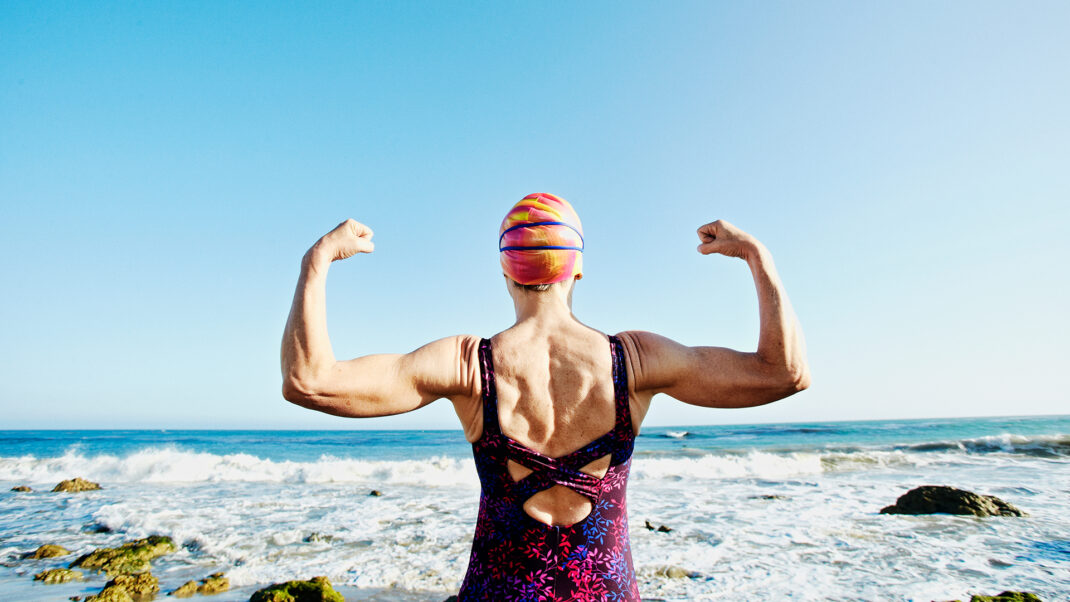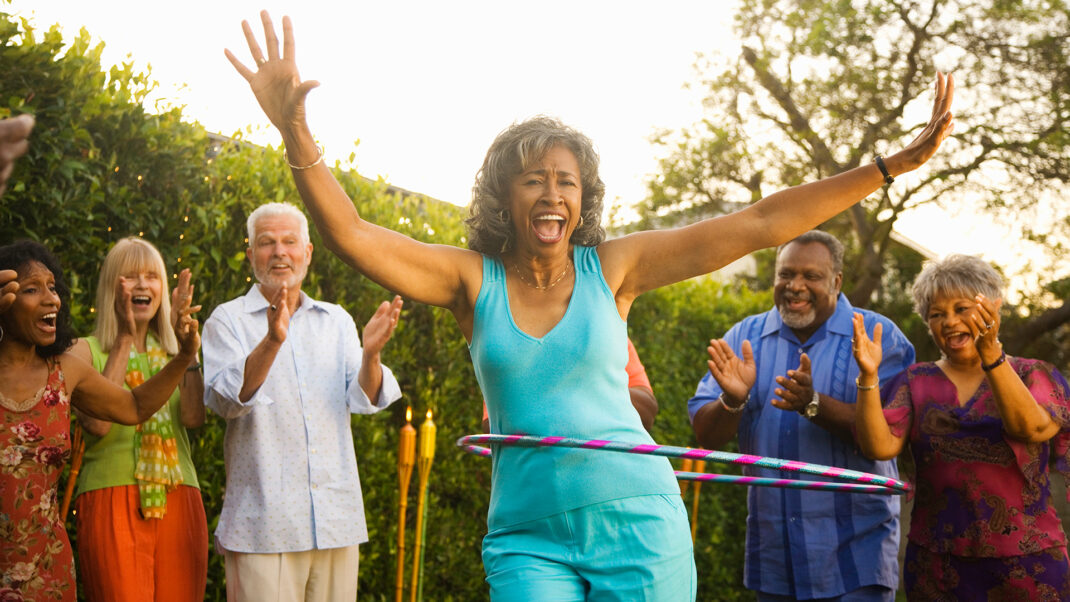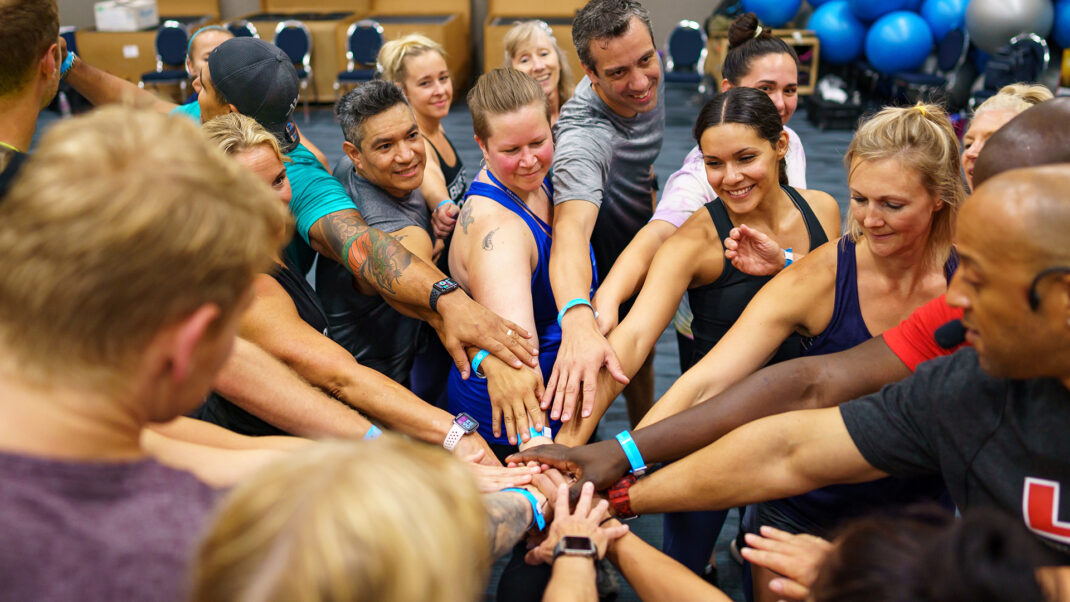
Ratcheting up the intensity of water workouts may help women lose weight without exacerbating knee pain, suggests a new study.
Knee osteoarthritis (OA) affects around 13% of women aged 60 and older, and the condition can make it painful for them to exercise and lose weight. It can also become a Catch-22, because carrying excess weight can worsen the problem.
In this study, researchers from the University of Jyväskylä in Finland wanted to understand the effects of a high-intensity water resistance program on walking speed and body composition in postmenopausal women with moderate knee OA. The 16-month study was multifaceted. During the first 4 months, 43 women aged 60–68 completed 48 intense water-based workouts, while 44 control-group participants maintained their baseline physical activity. Twelve months later, the researchers followed up with 84 of the women to retest the study’s primary measures. Leisure-time physical activity levels and knee injury OA scores were recorded throughout the intervention.
During the initial 4 months, the exercise intervention group experienced a significant decrease in fat mass and a significant increase in walking speed. Improvements in walking speed were still evident at the 12-month follow-up; however, the women had regained the weight they had lost. The researchers observed a strong link between higher leisure-time physical activity levels and fat loss. Knee injury and OA scores did not change.
The researchers believe that these findings could help women prevent knee OA from getting worse.
“Two main risk factors for the progression and worsening of pain and decrease in function capacity are increased body mass, in particular fat mass, and slower walking speeds,” according to a University of Jyväskylä press release. “Exercise on land is known to have a positive effect on body composition and walking speed but often people with knee OA avoid physical activity due to pain, even in the early stage of the disease. Therefore, aquatic resistance training appears [to] be an alternative training modality for this population.”
The study is available in Osteoarthritis and Cartilage (2017; doi: http://dx.doi.org/10.1016/j.joca.2017.02.800).
Ryan Halvorson
Ryan Halvorson is an award-winning writer and editor, and IDEA's director of event programming.






